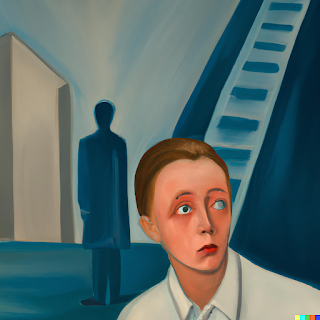Sobriquet 102.3: On Reading Myself After Twenty Years
For the most part, I see consistency. While many of my views have evolved over time, the core values generally remain the same. That said, as I was combing through decades-old posts from blogs on this website, I found myself opting not to republish some of the more dated material online. As some Sobriquet Magazine readers know, this publication originally appeared in print and many of my own early writings on this website also appear in the pages of those versions of Sobriquet that relied on ink to communicate. I decided not to republish some of the more dated material, knowing that interested readers can always find a copy of it on some dusty shelf in some library.
While I do not feel that many of those early writings are really all that interesting or particularly insightful any longer, it was enlightening for me to look at my adolescent self from the vantage point of a tenured college professor. What interests me most is that I see in my younger self the same tendencies I notice in many of my students. As a young graduate student fresh out of the relatively nurturing confines of a small liberal arts college, I balked at the suddenly competitive environment I encountered at Big Name research institutions in about as predictable a way as possible: I focused on all the various evils I saw in the corporate university and generalized on some of those observations. Having previously only encountered a minimal amount of critical theory in college, for instance, I saw its increased presence in graduate classes as the soulless intrusion of an invasive, corrosive, and dogmatic mentality into the idyllic intellectual Eden I had envisioned. Similarly, as new ideas and voices challenged my understanding of the canon, some part of me resisted the intellectual recalibration such encounters inevitably required me to make. Today, I see my own students wrestling with the same or similar adjustments and it is both humbling and instructive for me to realize that I was not so different, myself.
Note: The image used in this post was created with Dall-E 2, an AI program.



Comments
Post a Comment